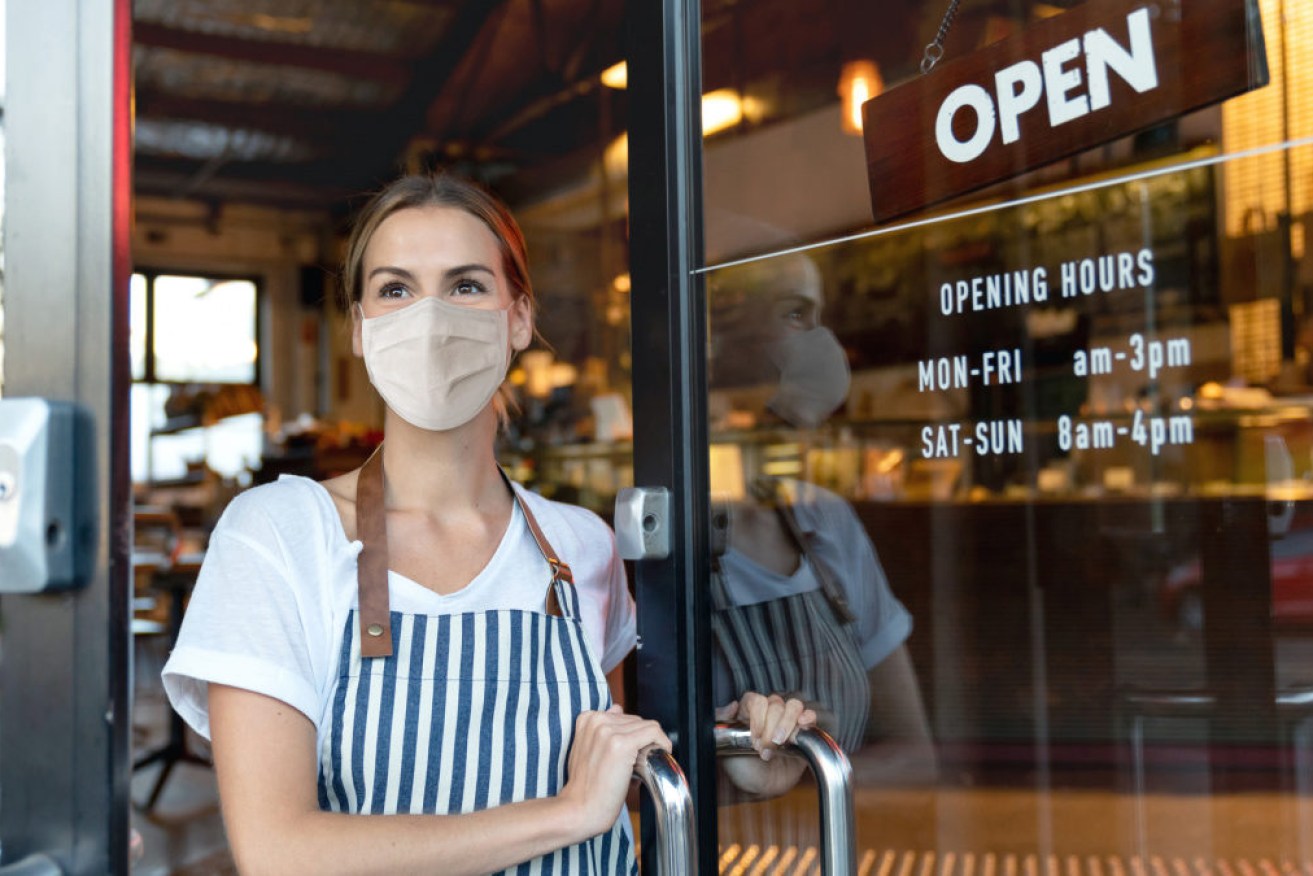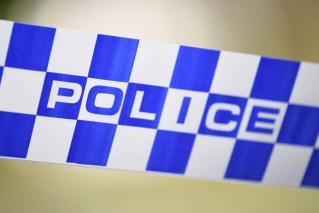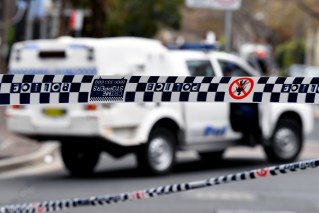COVID: Omicron at Melbourne pubs, NSW rules ease despite super-spreading events, Tasmania reopens, visa holders return


Photo: Getty
Unvaccinated people will be dining out in NSW from Wednesday as the state government holds firm on a promise to ease rules – despite recent “super-spreading” events at a nightclub and pub.
Meanwhile, travellers on student and skilled worker visas are being welcomed back at Australian airports.
Tasmania is also reopening to tourists.
The latest on the spread of Omicron is that Victorian authorities have confirmed a case has been detected in Melbourne.
A person who was infectious with the variant of the coronavirus was at Sircuit Bar in Fitzroy between 9pm and midnight last Friday.
They also went to the The Peel Hotel in Collingwood between 11.30pm and 3am.
For more on that and what to do if you were one of the hundreds of people at those venues, click through to the Victorian government’s advice page.
Or read on for a quick wrap of the other coronavirus news you need to know on Wednesday morning.
Tweet from @VicGovDH
Cases spike in NSW – but rules will ease
From Wednesday, for the first time in three months, the same set of rules will apply to the vaccinated and the unvaccinated in NSW.
The use of QR-code check-ins will be scaled back and masks required only in certain high-risk settings.
There’s no cap on visitors in homes, to hospitality venues, or on numbers for outdoor public gatherings.
The unvaccinated, who’ve remained in quasi-lockdown since restrictions eased for the vaccinated in October, can return to hospitality venues and non-essential retail.
The lifting of restrictions – long-planned for December 15 – comes just as case numbers spike to a two-month high.
Some 804 people tested positive for COVID-19 in NSW in the 24 hours to 8pm on Monday, a 50 per cent increase on the previous day.
They included 224 people in Newcastle, where super-spreading events at a nightclub and a pub have been identified.
By Tuesday afternoon, more than 200 people out of 680 revellers at the Argyle House nightclub on Wednesday night had tested positive for the virus.
Of the cases, 21 were identified as the Omicron variant, taking the total cases of the strain to 85.
Health alerts have also been issued for Finnegan’s Hotel in Newcastle and the Newcastle Exhibition and Convention Centre for last Friday night.
NSW was still in lockdown on October 2 when it last had more than 800 case. At the time, there were more than 1000 people hospitalised, including 202 in intensive care.
On Tuesday, there were 168 COVID-19 cases in hospital, of whom 21 were in the ICU.
“We’ve had two years of this – it’s time for us to move forward knowing that we have a health system that can cope,” Health Minister Brad Hazzard told ABC radio on Tuesday.
Some 94.8 per cent of eligible adults have received at least one jab in NSW, with 93.2 per cent fully vaccinated.
Mr Hazzard urged the remaining 5 per cent to reconsider.
“You were wrong, you are wrong,” he said of the unvaccinated on Tuesday.
“Save yourself and save your family. Save the health staff from having to be exposed to you in an unfortunate environment in a hospital and an ICU.That’s just plain not fair.”

Hundreds of people who partied at Argyle House nightclub have tested positive. Photo: ABC
Tasmania ready to welcome tourists
Tasmania is bracing for an influx of tourists and inevitable COVID-19 cases as it reopens to mainland states and territories.
The island state has thrown open its borders to fully-vaccinated travellers from Wednesday after closures spanning the best part of two years.
“This has been a very difficult 22 months. We have made some really difficult decisions,” Tasmanian Premier Peter Gutwein said on Tuesday.
“We’ve had to stop people entering to attend a funeral, to bury a loved one. We’ve stopped weddings.”
Under the reopening plan, people coming from designated high-risk areas must return a negative test in the 72 hours before they arrive and present proof at the border.
Tasmania has been largely spared the internal restrictions implemented across Australia and has been essentially free of virus cases in the community since a deadly outbreak early last year.
“It’s fair to say that many people will be looking forward to reopening, but also a little anxious about what impacts that will have on themselves, their family and their communities,” Mental Health Council of Tasmania CEO, Connie Digolis, said.
“One thing that people can do is try and focus on the good things that the border reopening will bring. For some that might mean reuniting with friends or family that they haven’t seen for a couple of years.
“For others, it might even be the big events that we can look forward to getting out and enjoying during the Tassie summer.”
Tasmania, with population of more than 541,000, has had 238 cases in total and 13 deaths.
The state government released border-reopening modelling a few months ago. It predicts 87 deaths in the six months from December and 50,000 cases.
The health department said the system was prepared. although unions have raised concerns about staff levels.
External triage areas have been prepared at major hospitals to facilitate greater patient screening in the event of community transmission.
State Health Commander Kathrine Morgan-Wicks said there was a virus surge capacity of 211 beds statewide, plus a critical care surge capacity of 114 beds.
More than 90 per cent of Tasmanians aged over 16 are fully vaccinated.
“While other states have opened their borders at 80 per cent, we took the very sensible decision to wait until we had 90 per cent,” Mr Gutwein said.
Tasmania has been swift to implement border restrictions during the pandemic to safeguard a population that is older than the national average.
Visa holders returning to Australia
Visa holders are now allowed to enter the country, almost two years since Australia’s international borders closed due to the pandemic.
The decision will from Wednesday allow skilled workers and international students to come into Australia without needing a travel exemption.
It comes after the federal government placed a two-week pause on visa holders being able to return over concern about the arrival of the COVID-19 Omicron variant.
Despite Omicron leading to spikes in case numbers in several states, the pause will end on schedule.
The resumption means a travel bubble with Japan and South Korea can also begin.
The government estimates about 235,000 visa holders would be eligible to enter the country, including an estimated 133,000 international students.
Universities Australia chief executive Catriona Jackson said she was delighted international students could at last return.
“We have missed their presence dearly and couldn’t be more delighted to welcome them back from today,” Ms Jackson said.
“We recognise the very real effects COVID-19 has had on their wellbeing, and the resilience they have shown amidst extreme uncertainty.”
-with AAP








